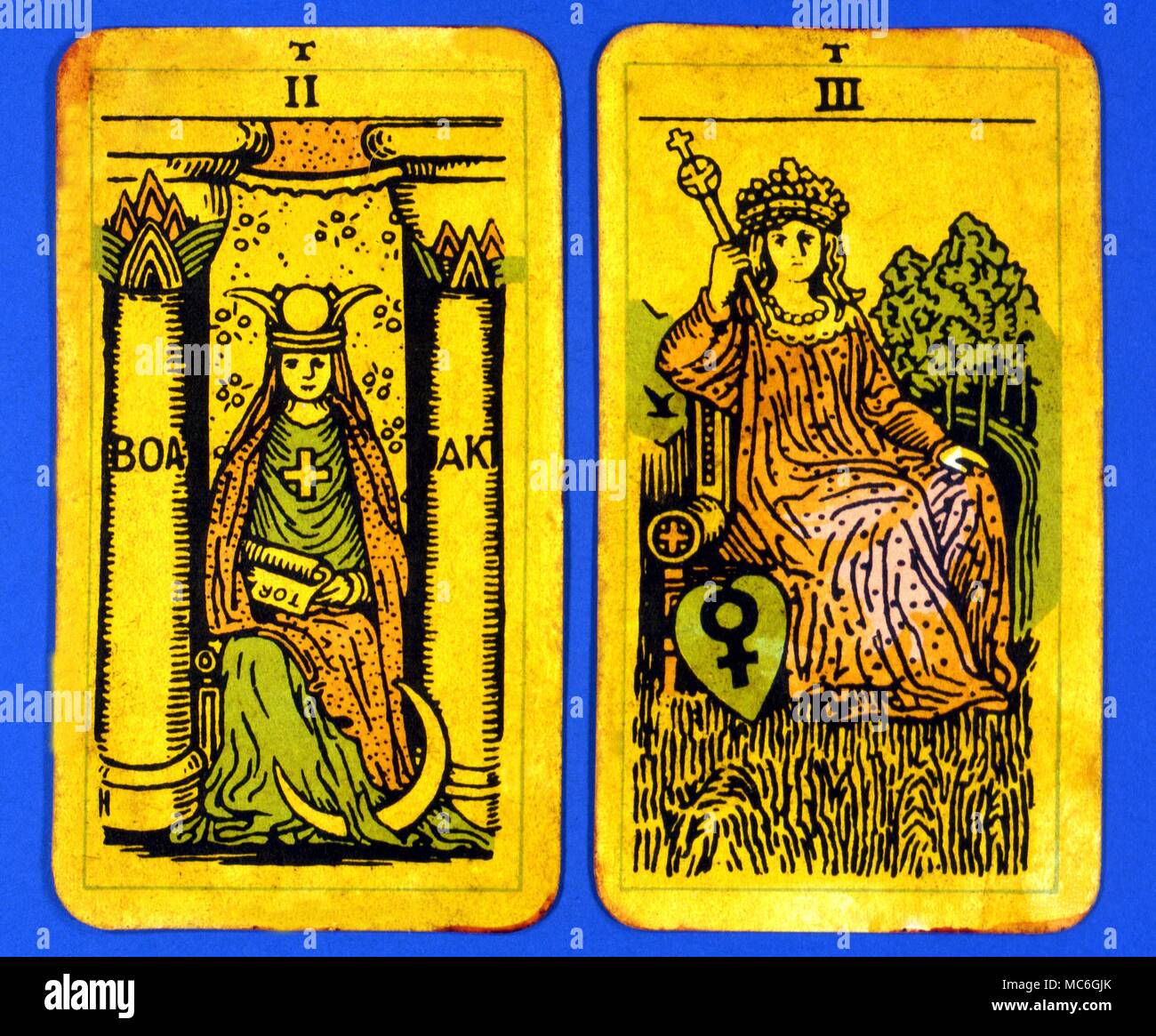Tarot Cards-Majo Arcana- The Parisian Tarot. Card 2. The Lady Pope, and Card 3. The Empress. Two cards from a Major Arcana picture Tarot, probably designed in an archaizing style in loose imitation of the Rosicrucian deck designed by Pamela Coleman Smith, alongside A.E.Waite, and various earlier decks, such as that published by Encausse (Papus) in The Tarot of the Bohemians at the end of the 19th century, post 1905, but earlier than 1912. The name Parisian Tarot was given by the owner of the deck - it might however be called the Tau Tarot, from the intriguing letter Tau at the head of each ca

Image details
Contributor:
Charles Walker Collection / Alamy Stock PhotoImage ID:
MC6GJKFile size:
32 MB (1.9 MB Compressed download)Releases:
Model - no | Property - noDo I need a release?Dimensions:
3676 x 3042 px | 31.1 x 25.8 cm | 12.3 x 10.1 inches | 300dpiDate taken:
13 April 2018Photographer:
Charles Walker CollectionMore information:
This image could have imperfections as it’s either historical or reportage.
Tarot Cards-Majo Arcana- The Parisian Tarot. Card 2. The Lady Pope, and Card 3. The Empress. Two cards from a Major Arcana picture Tarot, probably designed in an archaizing style in loose imitation of the Rosicrucian deck designed by Pamela Coleman Smith, alongside A.E.Waite, and various earlier decks, such as that published by Encausse (Papus) in The Tarot of the Bohemians at the end of the 19th century, post 1905, but earlier than 1912. The name Parisian Tarot was given by the owner of the deck - it might however be called the Tau Tarot, from the intriguing letter Tau at the head of each card.